 MyDogBreeds
MyDogBreeds Schweizer Niederlaufhund is originated from Switzerland but Japanese Spitz is originated from Japan. Schweizer Niederlaufhund may grow 9 cm / 4 inches higher than Japanese Spitz. Both Schweizer Niederlaufhund and Japanese Spitz are having almost same weight. Both Schweizer Niederlaufhund and Japanese Spitz has same life span. Both Schweizer Niederlaufhund and Japanese Spitz has almost same litter size. Both Schweizer Niederlaufhund and Japanese Spitz requires Low maintenance.
Schweizer Niederlaufhund is originated from Switzerland but Japanese Spitz is originated from Japan. Schweizer Niederlaufhund may grow 9 cm / 4 inches higher than Japanese Spitz. Both Schweizer Niederlaufhund and Japanese Spitz are having almost same weight. Both Schweizer Niederlaufhund and Japanese Spitz has same life span. Both Schweizer Niederlaufhund and Japanese Spitz has almost same litter size. Both Schweizer Niederlaufhund and Japanese Spitz requires Low maintenance.
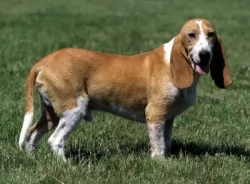 Originating in Switzerland, the Schweizer Niederlaufhund was established around 1900, when hunting became restricted to districts. The Swiss hunter needed a slower dog for the limited territory they could hunt in. Crossing selected Schweizer Laufhunds with Basset Hounds and other selected smaller, short legged hounds developed the Schweizer Niederlaufhund. By 1905 there was already a Schweizer Niederlaufhund Club.
Originating in Switzerland, the Schweizer Niederlaufhund was established around 1900, when hunting became restricted to districts. The Swiss hunter needed a slower dog for the limited territory they could hunt in. Crossing selected Schweizer Laufhunds with Basset Hounds and other selected smaller, short legged hounds developed the Schweizer Niederlaufhund. By 1905 there was already a Schweizer Niederlaufhund Club.
The Niederlaufhund became one of the best hunting dogs in the world, with its powerful body and ability to outhunt the Laufhund in tracking big game. Slower of course than the Laufhund it has a great sense of smell and an ability to easily find wounded animals. There are a few varieties, just like with the Swiss Hound again mostly because of their coloring. The Luzerner Niederlaufhund, the Jura Neiderlaufhund, and the Schwyzerlaufhund. They have musical voices that they use to communicate with the hunters and each other as well as that amazing sense of smell. They can hunt for hours without tiring and without much information from the hunter.
They are a cross breed not recognized by the larger kennel club such as the AKC and the UKC. They are recognized by the Dog Registry of America, Inc. (DRA), the American Canine Association Inc. (ACA) and most importantly by the Federation Cynologique Internationale (FCI). This last one is important because it could lead to recognition as a new breed by the UKC and the AKC.
 Spitz dogs include quite a few dog breeds and these dogs all have similar characteristics – pointed, erect ears, slanted type eyes with thick fur.
Spitz dogs include quite a few dog breeds and these dogs all have similar characteristics – pointed, erect ears, slanted type eyes with thick fur.
The Japanese Spitz was developed by Japanese breeders at the time of the 1920s, and bringing in quite a number of dog breeds to do so. The breeders started with the white German Spitz dogs but later other white Spitz breeds were imported and crossed into this developing breed.
The final standard for the breed after World War 11 was accepted by the Japan Kennel Club. The dog became recognized by other kennel clubs of the world.
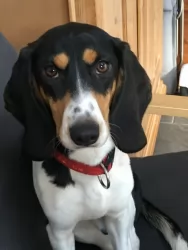 The Schweizer Niederlaufhund is a medium size, short dog. They look like their cousins, the Schweizer Laufhund but smaller. Their body is just slightly longer than it is tall, so you are left with the impression of a mostly square dog. The Niederlaufhund is well put together, with strong legs, a noble head, long droopy ears, broad chest, and a low held tail.
The Schweizer Niederlaufhund is a medium size, short dog. They look like their cousins, the Schweizer Laufhund but smaller. Their body is just slightly longer than it is tall, so you are left with the impression of a mostly square dog. The Niederlaufhund is well put together, with strong legs, a noble head, long droopy ears, broad chest, and a low held tail.
The Small Lucerne Hound has a white cote with smooth speckles of black or gray making them appear to be blue.
The Small Bernese Hound has a tricolor coat of white, tan and black. There are tan marks on the eyebrows. There is a wire haired Small Bernese as well. He has a short beard.
The Small Schwyz Hound is smooth coated in white with orange or yellow-red patches. The wired haired version is extinct.
The Small Jura Hound is a single coated dog with a black coat and tan marking above his eyes as eyebrows as well. He might have some white as well.
 The Japanese Spitz is a small to medium sized dog, being somewhat larger than the Pomeranian. The dog stands at 25 – 38cm, both male and female and weighs anything between 5 to 10kg.
The Japanese Spitz is a small to medium sized dog, being somewhat larger than the Pomeranian. The dog stands at 25 – 38cm, both male and female and weighs anything between 5 to 10kg.
The double coat of the dog is thick and white and the puppies look like large snowball.s He has a pointed muzzle with erect ears and a tail that curls up over the back.
The pure-bred Japanese Spitz, just like other Spitz dogs are smart, inquisitive dogs who show loyalty to their owners, getting on well with children in the home and making a good family pet.
They can be quite stubborn, so training and socialization becomes important if you want him to be obedient. Training is easy as he is an intelligent, bright little dog.
They’re able to adapt to life in the city or in the country, but if you live in the city, you will need to meet his exercise needs.
He can tolerate cold weather quite well but as a companion dog, he prefers being indoors with his human family.
Even though they are small dogs, they are protective and make good watchdogs. They were bred to be companion dogs and they take this role seriously, being loyal, entertaining, fun, friendly and loving with their human family.
It is why they are becoming such a popular breed as they have an amicable nature, getting on well with other pets as well as children.
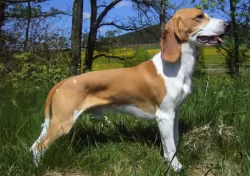 Children friendliness – yes, they are but use caution around small children and small prey.
Children friendliness – yes, they are but use caution around small children and small prey.
3. Adaptability - needs room to run and explore – is very frustrated when confined.
 Your Japanese Spitz is going to make you a superb companion and you want to ensure that you are well prepared for him when he arrives. He is feisty, charming, social, bright, alert, active, loyal and loving and you want to be sure that he has everything laid on as a 4-legged family member.
Your Japanese Spitz is going to make you a superb companion and you want to ensure that you are well prepared for him when he arrives. He is feisty, charming, social, bright, alert, active, loyal and loving and you want to be sure that he has everything laid on as a 4-legged family member.
He isn't a high maintenance dog, he isn't demanding and if you love and care for him, you'll find that he fills a vacancy in your life that you'll never want to be without again.
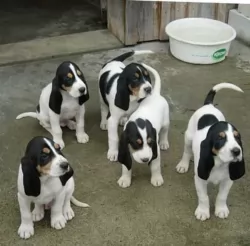 The Niederlaufhund Is prone to a very medical issues to keep an eye on. They include:
The Niederlaufhund Is prone to a very medical issues to keep an eye on. They include:
• Hip Dysplasia – This comes from hip joints that are not well formed and cause reduced mobility and pain. Parents can be tested before the dogs are bred to make sure their hips are good, and that dysplasia will not be passed to puppies. This dysplasia can cause arthritis and even lameness.
• Ear Infections – With long drooping ears it is easy for the dog to acquire ear infections. This is even more so for a hunting dog like the Niederlafhund. It is important to clean the dog’s ears on a regular basis.
 Life expectancy for the Japanese Spitz is about 10–16 years. They are a healthy breed with few genetic problems. Nothing is set in stone though, and your healthy dog can fall prey to some of the many common dog illnesses there are.
Life expectancy for the Japanese Spitz is about 10–16 years. They are a healthy breed with few genetic problems. Nothing is set in stone though, and your healthy dog can fall prey to some of the many common dog illnesses there are.
They're so sweet, you're tempted to feed him treats all the time, but obesity is a common Japanese Spitz health issue and obesity can lead to many problems with the heart, kidney, diabetes and even joint pain.
Also, eye problems such as ingrown eyelashes and a lower eyelid that rolls inward are problems that are known to trouble these Spitz type dogs. It leads to terrible irritation and damage to the eye. It's definitely time to see the vet to avoid infections and injury.
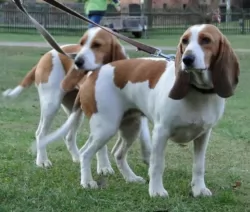 1Feeding the puppy - give 1 cup per day of high quality dog food divided into 3 meals.
1Feeding the puppy - give 1 cup per day of high quality dog food divided into 3 meals.
2.Feeding the adult – give one and one half cups of high quality dog food divided into 2 meals.
4. Games and Exercises – needs a lot of daily exercise and loves field trials, running and activities like barn hunt.
 The Japanese Spitz is an active dog and he will require at least one walk a day to keep him happy. He is full of beans and wants to go with you on all your outings.
The Japanese Spitz is an active dog and he will require at least one walk a day to keep him happy. He is full of beans and wants to go with you on all your outings.
The diet of your Japanese Spitz is basic to his good health. If you feed him low quality foods deplete of vitamins and minerals, you'll end up with a sick dog who is always at the vet. Puppies need 4 small meals a day while an adult dog can have 1 or 2 meals a day.
He can benefit from the top quality commercially manufactured foods and sometimes you can add in some cooked chicken, rice and vegetables into his dry kibble. Add in a little bit of raw meat too from time to time and ensure that he can always reach his bowl of fresh, cool water.
The beautiful white fur of your Japanese Spitz will need to be brushed at least twice a week to keep it free from loose hair and to keep the fur bright and vibrant.
Check his nails and avoid them getting too long as they can hook on things and cause injury. Check his ears inside and out, keeping them clean and free of debris. Very importantly, keep his teeth clean as dental disease can play havoc with a dog's health.